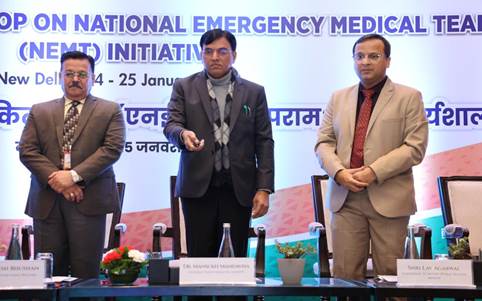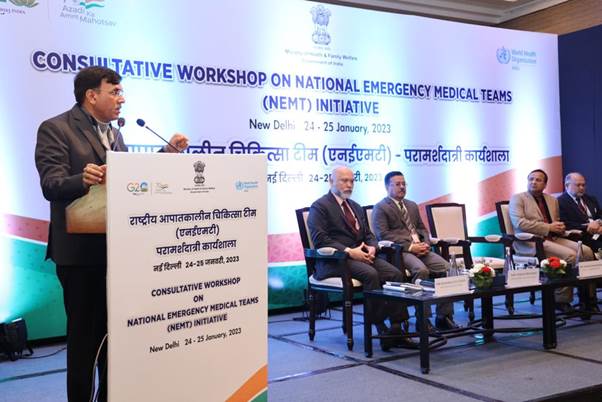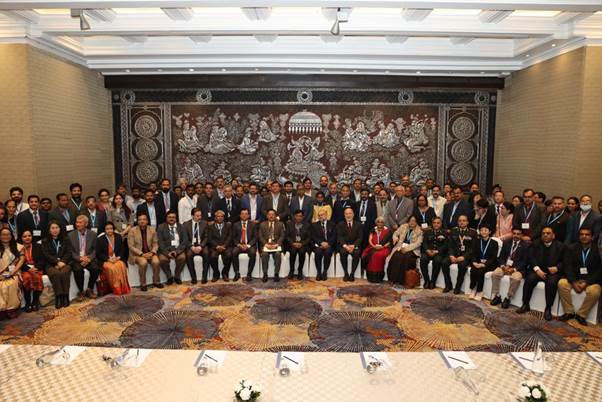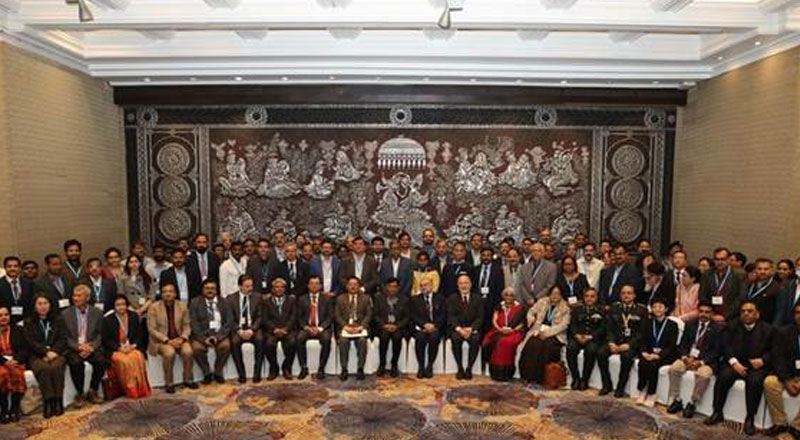Being a vast country with diverse terrains and geographies, India can have its own model for disaster/emergency response which can be emulated by other countries.” This was stated by Union Minister for Health and Family Welfare, Dr. Mansukh Mandaviya during his address at the consultative workshop on National Emergency Medical Team (NEMT) India, here today.

Dr Mandaviya added that ‘While it is important to learn from global best practices and follow Standard Operating Procedures (SOPs), let us learn from the national examples of emergency and disaster response in the past few decades and enrich our model from learning and insights from these. The multi-sectoral and multilayered learning need to be incorporated in the training and capacity building modules of the national architecture of emergency response and management”.

He further stressed that “The India model can go beyond the prescribed SOPs and be more flexible and agile to response to exigencies on the ground”. The purpose of the two days workshop is to bring together all stakeholders of the NEMT initiative to deliberate on the policy, strategy, roles and responsibilities of the initiative and prepare a roadmap for integrating the needs of the country for disaster preparedness aligning the health needs during disaster situation in concordance with standard disaster response.
Health emergencies prevention, preparedness and responses form one of the priorities areas under the G20 Health Track agenda. This is the first meeting soon after the G20 Health Working Group meeting in Thiruvananthapuram, Kerala (18-20 Jan 2023).

Union Health Secretary Shri Rajesh Bhushan emphasized the important of collaboration with multiple building blocks in existence including the NDMA, NDRF, state agencies, emergencies service providers, trauma centres etc. Noting as these largely work presently in a fragmented state, he highlighted the crucial need for synergizing efforts between them to ensure agility, rapid and effective response.
The National Emergency Medical Team (NEMT) initiative aims to revamp the traditional responsive mode of healthcare manpower deployment in response to disasters and public health emergencies. EMT is defined as a group of healthcare professionals providing direct clinical care to populations affected by outbreaks and emergencies as surge capacity in supporting the local healthcare system. During any emergency /disaster, the core capacities required to prepare for and mitigate the impact of any public health emergency remain largely the same. For the deployed teams to be effective, they are required to be formally trained and equipped not only in terms of clinical skills but also in terms of on-field coordination with other stakeholders on-field. Globally it has been seen that such EMTs need to be trained, standardized and quality assured to give predictable on-ground support to disaster response.
The two days workshop will deliberate on four crucial aspects relevant to emergency medical teams, including (i) System (ii) Staff (iii) Supplies and (iv) Structure.
Shri. Lav Agarwal, AS, Health Ministry; Shri Hitesh Kumar S. Makwana, AS, Ministry of Home Affairs, Shri Kunal Satyarthi, JS, NDMA, Dr Atul Goel, Director General of Health Services; Dr Anjana Rajkumar, Director, CGHS; Principal Secretary and Additional Chief Secretary of Andhra Pradesh, Arunachal Pradesh, Chhattisgarh, Goa, Gujarat, Kerala, Maharashtra, Mizoram, Odisha, Rajasthan, Sikkim, Tamil Nadu, Uttarakhand, Chandigarh, Uttar Pradesh, Jammu & Kashmir, Directors of AIIMS New Delhi, AIIMS Guwahati, AIIMS Patna, AIIMS Jodhpur, AIIMS Gorakhpur, AIIMS Nagpur, AIIMS Kalyani, AIIMS Bhopal, AIIMS Bhubaneswar and AIIMS Uttarakhand, members of the Indian Armed Forces, representatives and Directors from National Institutes and Public Sector Undertakings like ICMR, JIPMER, NIMHANS, PGIMER etc., and other senior officials also attended the event. Dr Roderic Ofrin, WHO Representative to India was also present.





